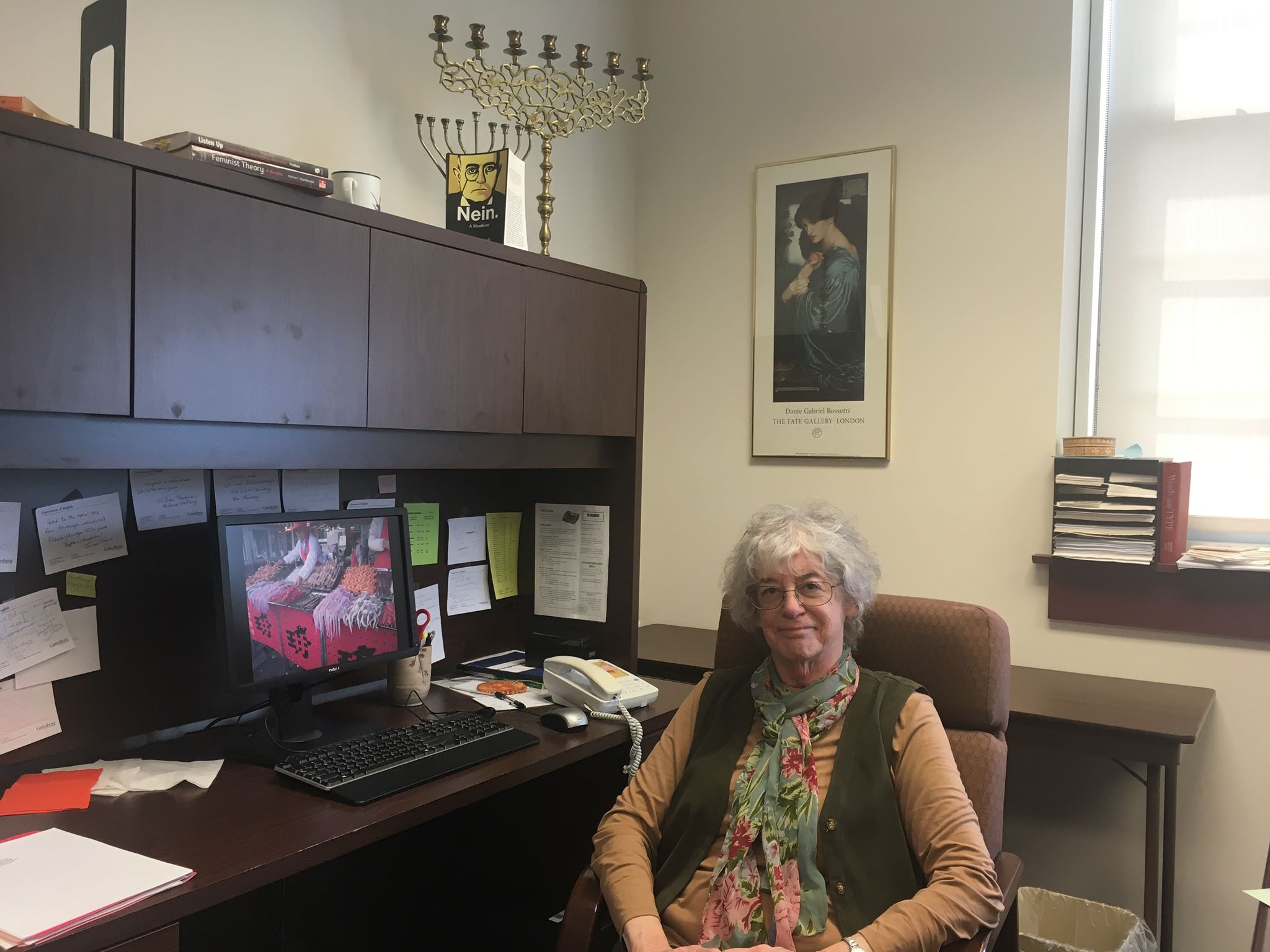Retiring Next Month, Berg Considers: “What Has it All Meant?”
By Gauri Mangala, Co-Features Editor
Temma Berg, an English Professor of 33 years, will be retiring from Gettysburg College this May.
While an English Professor, Berg is heavily involved in Women, Gender, and Sexuality Studies program, and is known for teaching courses in which the two studies intersect.
When asked what made her chart a path to teach WGS, Berg said, “I grew up in a time period with a lot of change, and I wanted to be a part of it.”
One of her main foci of intrigue is currently the Bronte sisters, Charlotte, Emily, and the lesser known Anne, and the interconnectedness of their stories. “Well they are sisters, and I’m a sister,” joked Berg as she explained the interest in the sister dynamic of the three authors. She also likes to venture into the film genre and how that affects the way a novel is portrayed, examined, and remembered. More specifically, why certain novels, like Jane Eyre and Wuthering Heights, have so very many film adaptations, but other novels may not even see more than one adaptation.
While Berg does hold the Bronte sisters in high regard, she has also found herself venturing past the canonical English and American female authors, such as the Brontes, but also Dickinson, Woolf, Austen, etc. “It is important to know about different kinds of women. I think it is important to know as many stories as we can.”
Berg applauds the ability of the internet to allow audiences to reach these stories of “un-sung women,” as she refers to them, however fears that an entirely online space to consume literature takes away from the experience, “Are we losing that contemplative space where you read slowly and enter the world? I worry about that.”
For example, Berg fears that ease of use of the internet to find summaries of texts will set up expectations. She is of the opinion that one should never set expectations when entering the literary landscape.
To those who consider English to be an ‘easy’ or ‘pointless’ major, Berg would argue that “at bottom, it’s all literature.” She went on to posit that “what literautre gives us is all the complexities of being human. By reading about others, we get to know ourselves more fully.”
During her time at Gettysburg, Berg has, in fashion with an English professor, written a lot. Berg has written articles on themes from women writers to reader-response criticism for publications such as “Papers in Language and Literature,” “Literature, Interpretation, Theory,” and “Eightenth-Century Women,” just to name a few.
In 2013, her edited collection “Women, Gender, and Print Culture in Eighteenth-Century Britain: Essays in Memory of Betty Rizzo,” was published.
For Berg, some take aways that she has gained from teaching at Gettysburg College have been that one has to be open to new ideas, and to never be afraid of arguing with each other. “That’s the fun of it,” she said, “that’s why education is alive!”
After retirement, Berg intends to continuing her writing and research. She wishes to develop a life-long learning program in Gettysburg, one in which everyone is a teacher, and everyone is a student. “I hope people will think of their own learning as lifelong learning. They’re learning to be human,” she said.
She also intends to work on her memoir, “Diary of a Mad Professor” (working title). “I kept a diary of my last semester,” she explained. Berg went on to say that as she thinks about retirement, she is forced to think: “What has it all meant?”
Berg concluded stating, “I’ve been thinking a lot about the importance of contradiction, paradox, and empathy. We have enough self-righteousness, we could use more empathy.”

